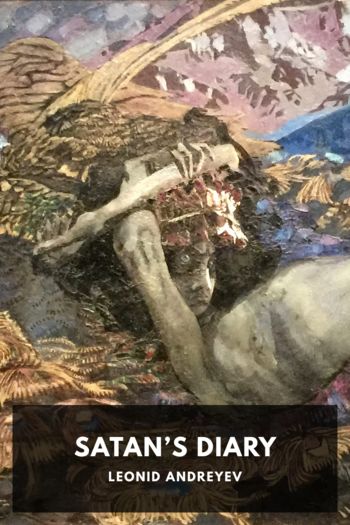Short Fiction - M. R. James (mobile ebook reader .txt) 📗

- Author: M. R. James
Book online «Short Fiction - M. R. James (mobile ebook reader .txt) 📗». Author M. R. James
After two days’ contemplation of it, Jensen, who was the bolder spirit of the two, hazarded the conjecture that the language was either Latin or Old Danish.
Anderson ventured upon no surmises, and was very willing to surrender the box and the parchment to the Historical Society of Viborg to be placed in their museum.
I had the whole story from him a few months later, as we sat in a wood near Upsala, after a visit to the library there, where we—or, rather, I—had laughed over the contract by which Daniel Salthenius (in later life Professor of Hebrew at Königsberg) sold himself to Satan. Anderson was not really amused.
“Young idiot!” he said, meaning Salthenius, who was only an undergraduate when he committed that indiscretion, “how did he know what company he was courting?”
And when I suggested the usual considerations he only grunted. That same afternoon he told me what you have read; but he refused to draw any inferences from it, and to assent to any that I drew for him.
Count MagnusBy what means the papers out of which I have made a connected story came into my hands is the last point which the reader will learn from these pages. But it is necessary to prefix to my extracts from them a statement of the form in which I possess them.
They consist, then, partly of a series of collections for a book of travels, such a volume as was a common product of the forties and fifties. Horace Marryat’s Journal of a Residence in Jutland and the Danish Isles is a fair specimen of the class to which I allude. These books usually treated of some unknown district on the Continent. They were illustrated with woodcuts or steel plates. They gave details of hotel accommodation, and of means of communication, such as we now expect to find in any well-regulated guidebook, and they dealt largely in reported conversations with intelligent foreigners, racy innkeepers and garrulous peasants. In a word, they were chatty.
Begun with the idea of furnishing material for such a book, my papers as they progressed assumed the character of a record of one single personal experience, and this record was continued up to the very eve, almost, of its termination.
The writer was a Mr. Wraxall. For my knowledge of him I have to depend entirely on the evidence his writings afford, and from these I deduce that he was a man past middle age, possessed of some private means, and very much alone in the world. He had, it seems, no settled abode in England, but was a denizen of hotels and boardinghouses. It is probable that he entertained the idea of settling down at some future time which never came; and I think it also likely that the Pantechnicon fire in the early seventies must have destroyed a great deal that would have thrown light on his antecedents, for he refers once or twice to property of his that was warehoused at that establishment.
It is further apparent that Mr. Wraxall had published a book, and that it treated of a holiday he had once taken in Brittany. More than this I cannot say about his work, because a diligent search in bibliographical works has convinced me that it must have appeared either anonymously or under a pseudonym.
As to his character, it is not difficult to form some superficial opinion. He must have been an intelligent and cultivated man. It seems that he was near being a Fellow of his college at Oxford—Brasenose, as I judge from the Calendar. His besetting fault was pretty clearly that of over-inquisitiveness, possibly a good fault in a traveller, certainly a fault for which this traveller paid dearly enough in the end.
On what proved to be his last expedition, he was plotting another book. Scandinavia, a region not widely known to Englishmen forty years ago, had struck him as an interesting field. He must have alighted on some old books of Swedish history or memoirs, and the idea had struck him that there was room for a book descriptive of travel in Sweden, interspersed with episodes from the history of some of the great Swedish families. He procured letters of introduction, therefore, to some persons of quality in Sweden, and set out thither in the early summer of 1863.
Of his travels in the North there is no need to speak, nor of his residence of some weeks in Stockholm. I need only mention that some savant resident there put him on the track of an important collection of family papers belonging to the proprietors of an ancient manor-house in Vestergothland, and obtained for him permission to examine them.
The manor-house, or herrgård, in question is to be called Råbäck (pronounced something like Roebeck), though that is not its name. It is one of the best buildings of its kind in all the country, and the picture of it in Dahlenberg’s Suecia antiqua et moderna, engraved in 1694, shows it very much as the tourist may see it today. It was built soon after 1600, and is, roughly speaking, very much like an English house of that period in respect of material—redbrick with stone facings—and style. The man who built it was a scion of the great house of De la Gardie, and his descendants possess it still. De la Gardie is the name by which I will designate them when mention of





Comments (0)